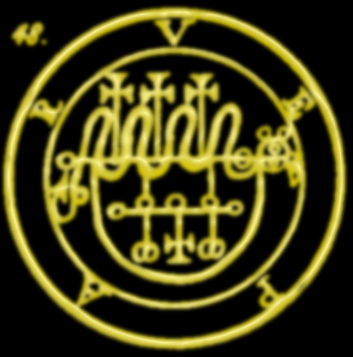I write fiction. Here. Let me spin you a lie for the sake of pure entertainment.
There’s no such thing as truth. Words are everything. Regardless of what you see or hear or feel yourself, it’s nothing but confusing noise. Because of your limited powers of understanding you recognize only bits and pieces, trying desperately to concentrate only on the parts that make sense to you, and you understandably forget the noise. In fact, you don’t even remember the stuff you recognize. You remember only the words that you encode the noise into, and those words become your paltry substitute for truth and experience. And you, with your limited vocabulary, do a piss-poor job of it.
To try to make up for this, you turn to the words of more eloquent and charismatic bastards and let them overwrite your impoverished encapsulations in order to allow a more important and more memorable version of reality to thrive — a version that you can discuss with other people who have heard the same speeches and who, in general, tend to agree with you.
For the sake of belonging to this group — people who you hope will get your back in a scuffle and help take care of you in your declining years — you’re happy to allow this to happen to you, this overwriting of your sketchy approximation of reality. Further, the duty of belonging requires that you propagate it to others — less to convince outsiders, because that’s frankly impossible as they are undergoing their own onslaught of words from inside their own groups — but more toward reinforcing the subjugation of reality among your peers so that everyone stays together in these dark and confusing times.
If you don’t allow this corruption of your memories and thoughts and attitudes, and reinforce it among your peers, you will be outcast. And if you do cooperate, reality itself bends around you to enfold you in a comforting shape. And eventually the reality of the largest group of people will win out, thereby forcing their version of reality on their enemies and the undecided. This is the power of belief, the power of faith.
This is the necessary process to shrink the scary and unfathomable world to a manageable size, the critical parts of which you can now stuff in your head and thereby know how to be a righteous human being — this process of willful ignorance of your own experience and this subjugation of your impoverished view of the world to the goals of those who’d expend you all you hold dear for a greater good that you must not doubt exists, that you must not doubt has objective merit, because you know you’ve wagered your soul. And willingly participated in encouraging the same in your friends and family.
Just so that if it all goes wrong and you stand wanting and hideously embarrassed at the Final Judgment you can point to the serpent and say you were deceived. It’s a pathetic defense, but when you face the God of Infinite Mercy it should suffice, right?
I write fiction. I know the stuff of lies because I tell them. I invent them for my own amusement and to entertain others — and occasionally, as do we all, to protect the feelings of those I care about and to defend myself from the consequences of my actions when I act selfishly. I know lies the way a carpenter knows wood. The way a sculptor knows marble.
Beyond lies, I know there’s an objective reality that’s much deeper than the ones people build out of a foam of clever words, even though actual reality can look different from different vantage points. I know there’s a universe that, from our viewpoint embedded in time and space, is ancient and vast, but not uncountably or immeasurably so, and that doesn’t require any kind of miracle to explain either itself or its mechanisms. And while I’m still subject to the power of wonder, I don’t require any belief that it has any parts that are beyond my capacity to understand if I give it the time and study it deserves.
Our senses might limit the amount of the universe that we may directly experience, but we can know more about it than we can encode into words, regardless of the relative sizes of our vocabularies. And despite the limitations of both our senses and the machines that we build out of logic and science, we can measure the bulk of it and extrapolate as far as we dare.
We aren’t required to live our lives in a fog of other people’s lies, in denial of the evidence of our own sense and senses, and hope for the best. We can — and must — test everything we are told to see if it’s made out a foam of lies or if it can bear weight.
Here’s a test, especially relevant in today’s “post-truth” era of rampant greed.
Where does the message come from? Who paid money to have the message constructed and disseminated? What profit would the originator reap in having the message widely accepted as truth? Does this message contradict any information from sources that aren’t profit-motivated? If so, which source has better access to the equipment and personnel to make direct observations of the phenomena in question?
It’s a simple and effective test, but we balk at applying it because we’re afraid we’d be ostracized by our chosen side if we’re seen to show any doubt in our side’s doctrines. We’re afraid, more than of being wrong and knowing it, of being unsupported and alone. That makes us a planet full of chumps and cowards. It makes us tools capable of atrocities we can only barely comprehend in the hands of wealthy and charismatic fiends that killed their own consciences in the cradle. Or ate ’em in their respective wombs.
And that’s no lie.
[*]






